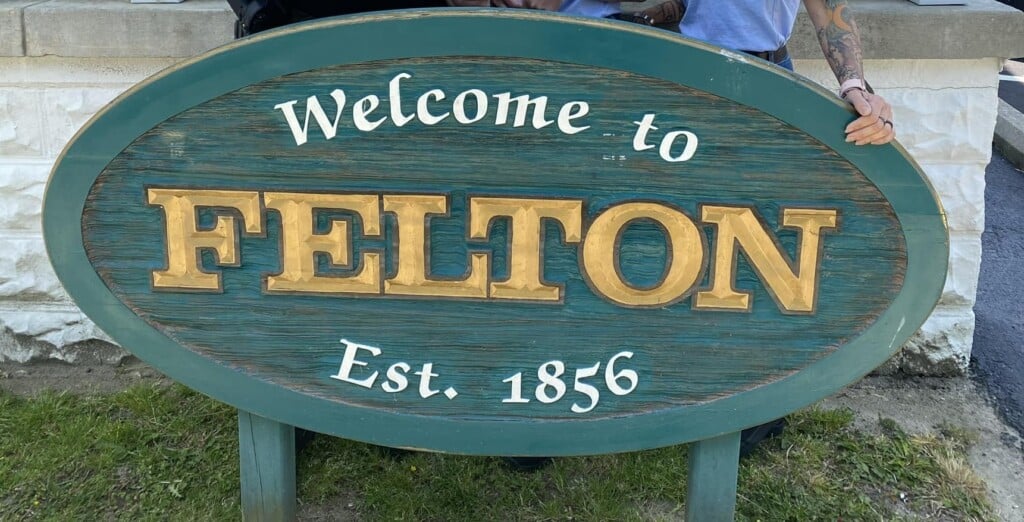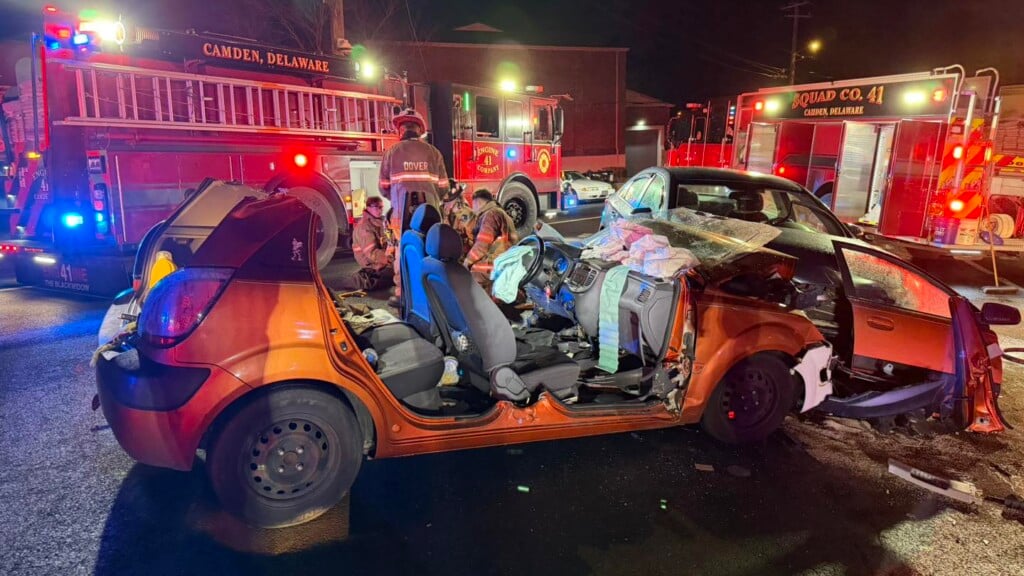Activists raise concerns as Seaford biogas facility planning continues
SEAFORD, Del. – Wednesday night, the Delaware Department of Natural Resources and Environmental Control (DNREC) is accepting public comment on a proposed anaerobic digester facility in the Seaford area.
Bioenergy Devco’s (BDC) proposed expansion would convert poultry industry waste into methane gas, using several anaerobic digesters. The company says this method is an innovative way to solve the First State’s poultry waste problem; instead of spreading poultry industry waste on open fields, it would be recycled in what the company calls an enclosed system.
However, activists are concerned about the facility’s potential impacts on the surrounding community and environment.
Surrounding Communities
The proposed expansion site sits about 0.5 miles from Ebenezer Haitian Seventh-Day Adventist Church. Plus, Sussex Manor and Pine Ridge Mobile Home Parks sit 0.5 miles and 1.5 miles from the site, respectively. Activists say the area is also home to large LatinX and Haitian communities, often vulnerable to environmental injustice, and health complications like asthma.
DNREC posted several public notices about the proposal between August 21st, 2022, and September 25th, 2022. However, Delaware Organizer for Food & Water Watch, Greg Layton, claims the communities in that area did not receive proper outreach in regards to the proposal. In speaking with residents, he says many of them had never even heard of Bioenergy Devco, or DNREC.
“There’s no reason for people to look online for something they don’t know exists. And, most of the people that I met were not technologically equipped with broadband to do that kind of search,” said Layton.
Maria Payan of Sussex Health and Environmental Network and Socially Responsible Agriculture Project echoed those claims.
“It’s got to be more than just talking points,” said Payan. “DNREC put out press releases and posted an online community meeting in an area where many have no access to the internet. The Haitian community never received any kind of written notice until two and a half weeks after the meeting.”
However, Bioenergy Devco promises that the needs of the surrounding communities is top of mind. On their website advertising the project, the company writes:
“BDC welcomes the opportunity to build relationships with communities. We are committed to understanding community priorities that address jobs, local hiring, environmental justice, and other challenges to guarantee that the communities in which we operate enjoy the benefits of anaerobic digestion. BDC has implemented many design features relating to odor and dust control, traffic concerns, noise, safety, and much more.”
Pollution Worries
According to Bioenergy Devco’s proposal, the facility would process about 250,000 tons of poultry processing waste in just one year. That waste includes “poultry litter, poultry industry liquid and solid cake dissolved air flotation (DAF), [and] bioreactor sludge from the on-site wastewater treatment plant”.
Activists claim about 73,000 trucks per year would haul the waste product into the facility from the surrounding tri-state area. The combination of the waste itself, plus the pollution that activists claim it could bring, causes them major concern.
“At the end of the day, it is the factory farming system driving Delaware’s air and water pollution. Any serious efforts to address these intertwined crises must address the ongoing proliferation of factory farming,” said Layton. “[The] proposed biogas facility will worsen climate change, water quality, and environmental injustices, while doing little to nothing to solve the First State’s pollution problems.”
Bioenergy Devco says concerns over pollution should not be major, as they have planned ahead to mitigate environmental impacts. The company says on their website that air quality could actually improve with the project, writing:
“In Sussex County, the facility is designed to minimize carbon-intensive disposal methods, such as landfills and land application, which release polluting greenhouse gases and damage the air we breathe. Shifting away from polluting forms of organics disposal will yield immediate tangible results for the environmental health of Delaware’s communities – particularly those that have been most underserved historically.”
Health Concerns
Activists also expressed concerns about potential health impacts on area residents. Layton says the “unchecked” spread of factory farms that would be supplying the poultry processing waste to the facility only contribute to the issue.
Layton says almost 200,000 Delawareans rely on private wells for drinking and bathing. He adds that well water is often contaminated with nitrates from the poultry industry, and cited a University of Maryland Study which linked the chemicals to birth defects, disabilities, and learning delays.
“Factory farms are also linked to public health threats, such as air polluted to ammonia, which contributes to nearly 13,000 premature deaths in the U.S. each year, according to a study released last year,” said Layton.
The company also addresses worries over diminished water quality and the associated health risks on their website, writing:
“BDC’s fully enclosed anaerobic digesters eliminate the groundwater pollution often caused by excessive land application and landfill operations, minimizing runoff that can poison ecosystems and cause significant human health problems. The facility does not require fresh water to process materials.”
Industry and Innovation
Layton says large, local poultry companies, like Perdue and Mountaire Farms have expressed interest in using the facility to dispose of their waste.
“Rather than solve the problem, Bioenergy Devco wants to lock us into the polluting factory farm system, driving the problem,” said Layton. “Bioenergy Devco’s proposal is not a solution to the poultry industry’s waste problem, and it is not compatible with a clean energy future.”
Dustyn Thompson of the Delaware Chapter of the Sierra Club echoed those concerns. He claims that while Bioenergy Devco is promising innovation that helps everyone, it will only serve the poultry industry.
“Bioenergy Devco’s proposed plant will project the exact greenhouse gas emissions that we need to be reducing dramatically,” said Thompson. “To put it plainly, this is not a small digester operation. This is not to help Delaware or our communities. This is solely to help these privately owned, large agricultural operations expand.”
But, Bioenergy Devco says they plan to pull locals into the effort, for the interest of the community as a whole. On their website, they write:
“The Bioenergy Innovation Center will expand its workforce. In addition to the equipment operators, floor operators, mechanics, and administrative staff employed there now, we will hire environmental technicians and microbiologists once the work is expanded.”
Looking Ahead
On October 17th, 47 ABC reached out to Bioenergy Devco for further clarification on how the company plans to mitigate potential pollution and climate change, as well as ensure environmental stewardship, and the health, safety, and environmental justice needs of those living in the area. The company declined an interview, and promised a press release in the near future.
DNREC was also asked by 47 ABC for clarification on the permitting process that Bioenergy Devco is currently undergoing. The department sent a statement reading:
“DNREC does not comment on permit applications under consideration by the Department, but holds public hearings in order to accept and weigh comments from the public in making a decision about the permit applications such as those submitted by Bioenergy Devco. That’s the premise of the hearing – soliciting public comment – and DNREC is charged with conducting the public hearing through the State of Delaware’s regulatory process. Information and exhibits about the proposed expansion by Bioenergy Devco are available at de.gov/biodevco.”
DNREC will accept written public comment through Friday, December 2nd, 2022. Comments can be emailed to DNRECHearingComments@Delaware.gov. For more information about the project, click here.


